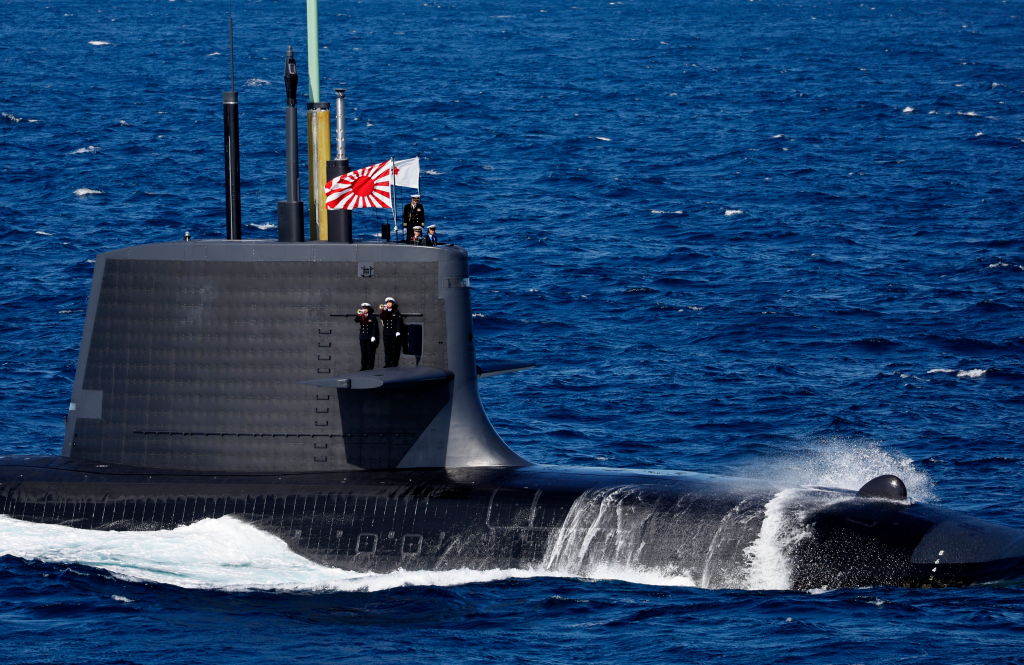
Japan is unique among G7 nations in that it faces cascading threats from three hostile countries in its immediate neighbourhood.
Russia, North Korea and China all have nuclear warheads and missiles that are increasingly advanced, and all three are behaving in a conspicuously hostile and undemocratic fashion.
Former Japanese prime minister Shinzo Abe met Russian President Vladimir Putin as many as 27 times, hoping to reduce the threat Russia posed by forging a bilateral peace treaty. Now with Japan fully aboard the sanctions regime against Putin’s Russia, the relationship between Tokyo and Moscow has hit a historic low.
That raises the possibility that Russia and North Korea might prepare for joint military action against Japan and combined US-Japanese forces if Taiwan is attacked by China’s People’s Liberation Army.
That might sound far-fetched, but Japan must prepare for a worst-case scenario and Tokyo remains grossly unprepared for such a possibility.
As prime minister, Abe advocated for both the ‘free and open Indo-Pacific’, or FOIP, concept and the Quad grouping of Australia, India, Japan and the US, primarily to safeguard Japan’s strategic independence.
As a seafaring island nation, it is vital for Japan to keep the vast stretch of Indo-Pacific seascape free, open and protected by rules. That’s where the country’s biggest national security interest lies. Should Taiwan be lost to Beijing, there will eventually be no FOIP and the Quad will become so ineffective as to be meaningless.
With Taiwan under Chinese Communist Party Rule, the East and South China Seas will become an ‘anti-access and area-denial zone’ under Chinese control, depriving both the Japan Maritime Self-Defense Force and the Japan-based US naval presence of navigational freedom and rendering the US-Japan alliance toothless—or a paper tiger, to use a Mao Zedong metaphor.
That possibility lends weight to a scenario where Russia and North Korea act to divert military resources that Japan and the US could otherwise use to defend Taiwan.
In a shameless declaration of Beijing’s intent, the CCP has published a white paper which states unequivocally that the ruling Taiwanese nationalist and centre-left Democratic Progressive Party must be removed. To achieve that, the CCP might set out to engineer societal upheavals in the run-up to Taiwan’s 2024 presidential election to make the island ungovernable.
That could involve cutting the undersea cables that sustain Taiwan’s communications with the outside world and, in this information vacuum, spreading the word that a novel coronavirus, much more deadly than the original Wuhan one, has been found and that international shippers and airliners are strongly advised to cease their Taiwan connections.
In that scenario, effectively an economic blockade, there’d be no outright hostilities between the two sides of the strait, making it essentially impossible for US, Japanese and other allied forces to intervene.
Even if Beijing mounts a direct military assault against Taiwan, the rest of the world may be much less united than it is now against Russia over Ukraine. Taiwan is a member of neither the United Nations nor its affiliated bodies, and neither Japan nor the US has formally acknowledged its status as an independent state.
Taiwan will continue to be the most strategically important element in the entire Indo-Pacific regional strategic picture.
Japan must prepare. Tokyo should call on as many like-minded nations as possible to unite in raising Taiwan’s status to make it a more integrated part of the world system and hence too valuable to lose. Tokyo and Washington must work in tandem to achieve that goal.
Japan must build its military strength noting that the slightest hint of weakness will only invite more provocation from Beijing. That includes developing offensive missile capabilities along with an ability to effectively wage information warfare and deal with threats in cyberspace.
Tokyo, in the comparatively stable Cold War circumstances that are now long gone, maintained the policy that it would not build or possess nuclear weapons and nor would it allow the presence on its soil of any kind of nuclear arsenal.
It’s now time for that last element to be shelved. Japan should invite the US to semi-permanently station its nuclear-capable attack submarines in Sasebo or Yokosuka.
Prime Minister Fumio Kishida must lead the nation with resolve—and do so before it’s too late.

